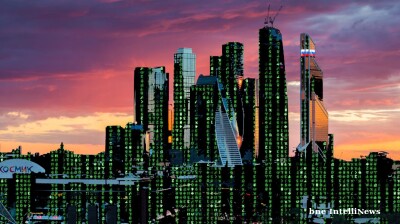Russia’s artificial intelligence industry is expanding rapidly but remains hobbled by limited access to advanced computing power due to Western technology sanctions, Kommersant reported on September 23.
Industry leaders say the country is about six months behind global competitors, though efforts are under way to close the gap through domestic innovation and partnerships with China and BRICS countries.
The technological tie up between China and Russia is deepening, which is increasingly able to replace western technology. On the battlefield in Ukraine, Russian missiles used to be full of smuggled western technology, including importing washing machines to cannibalise them for its advanced chips. But recently a Chinese decoy drone was discovered that contained predominantly Chinese-made electronics control systems. Likewise, Iran has started to send Russia advanced, high-efficiency gas turbines to replace those previously supplied by Germany’s Siemens. One of the unintended side effects of the war in Ukraine has been to spur innovation from Russian cheese to turbines, with the most prominent example of its development of the Sputnik V vaccine – the world’s first and still more effective vaccine against the coronavirus. A similar story is starting to play out in Russia’s AI development.
“In the global market, companies are already focusing their approaches to AI on creating mass-market products, while in Russia this trend is only just emerging,” Maxim Malyshev, Chief Executive of Notamedia.Agency told Kommersant. “We’re significantly lagging behind Western players: we started later, have less computing power, and a more limited training database. Although tools are emerging that can partially replace Western equivalents, foreign services are gradually being curtailed.”
Russian firms are investing heavily in advanced AI capabilities to stay in the game. China, which shocked the West with the development of the DeepSeek AI at a fraction of a cost to US competitors, is expected to aid this effort.
“We are seeing the transition to multimodal models, the integration of reasoning AI, and the reduction of hallucinations,” said Stanislav Yezhov, AI Director at Astra Group.
Russia’s two tech giants, search engine Yandex and Sber, the tech umbrella company that owns retail banking giant Sberbank, are leading the charge.
Yandex has already added reasoning to its GPT model, while Sber is preparing to launch a new version of its GigaChat system with similar functionality. According to Yezhov, Russian developers’ focus on algorithm optimization to compensate for limited computing power could become a competitive strength.
Maxim Bolotskikh, another industry expert, noted that a growing number of Russian companies are refining and adapting open-source models. “This strategy often allows for cheaper and faster adaptation to local realities, taking into account language, context, and business processes,” he said. “In practice, it proves more effective for solving applied problems, especially in the corporate and service sectors. However, this requires strong AI competencies, which not all large companies possess.”
Market estimates suggest the sector is becoming increasingly significant. Denis Filippov, Chief Executive of MWS AI, part of MTS Web Services, forecast the Russian B2B and B2G AI market at RUB170bn ($1.86bn) in 2025, with 70% accounted for by hardware and 30% by AI products and consulting.
Generative AI is also expanding quickly. “The volume of generative AI in Russia could reach RUB23.4bn ($280mn) by the end of 2025,” said Vsevolod Morotsky, Managing Partner at Sibedge. “This is more modest than global figures, but the growth rate is impressive: more and more companies are actively testing practical use cases—from document management to customer support.”
Analysts from Smart Ranking estimated the broader Russian AI market at RUB1.9tn ($20.8bn) in 2024, with annual growth of 25–30%. However, they stressed that 95% of revenue is concentrated among the top five companies.
Konstantin Smirnov, Commercial Director of DAR, said demand is shifting from bespoke solutions to off-the-shelf products. “Many large companies are actively acquiring GPT models from Sber and Yandex. I believe that by the end of 2025, the volume of such deals could reach several billion rubles,” he said.
Yandex said generative AI is gaining traction in code generation, automated support, and search applications. “The most notable trends are the application of generative AI in areas previously dominated by other AI methods, such as recommender systems, as well as the creation and implementation of AI agents and the integration of generative models into mass-market products,” the company stated. Yandex added that it is testing its Alice assistant as an AI agent integrated into Yandex Browser.
Tech

Revolut receives green light from central bank to launch Hungarian branch
Revolut has grown into a significant competitor for traditional Hungarian banks, particularly in foreign exchange and money transfers.

Defence conglomerate Czechoslovak Group acquires Serbian drone tech company MUST Solutions
CSG has been on a shopping spree propelled by its boosted sales following the Russian full scale invasion of Ukraine in 2022 as well as armed conflicts in the Middle East and Africa.

Japan’s Nintendo predicts sales of 19mn Switch 2 units to March
The Switch 2 marks Nintendo’s most expensive hardware platform to date and represents the company’s principal long-term base for its extensive roster of first-party franchises.

Kyrgyzstan’s president addresses son’s involvement in creating digital bank with Binance founder ‘CZ’
Crypto kingpin Changpeng Zhao, two weeks ago pardoned by Donald Trump over money laundering, is adviser to country’s leader Japarov.




